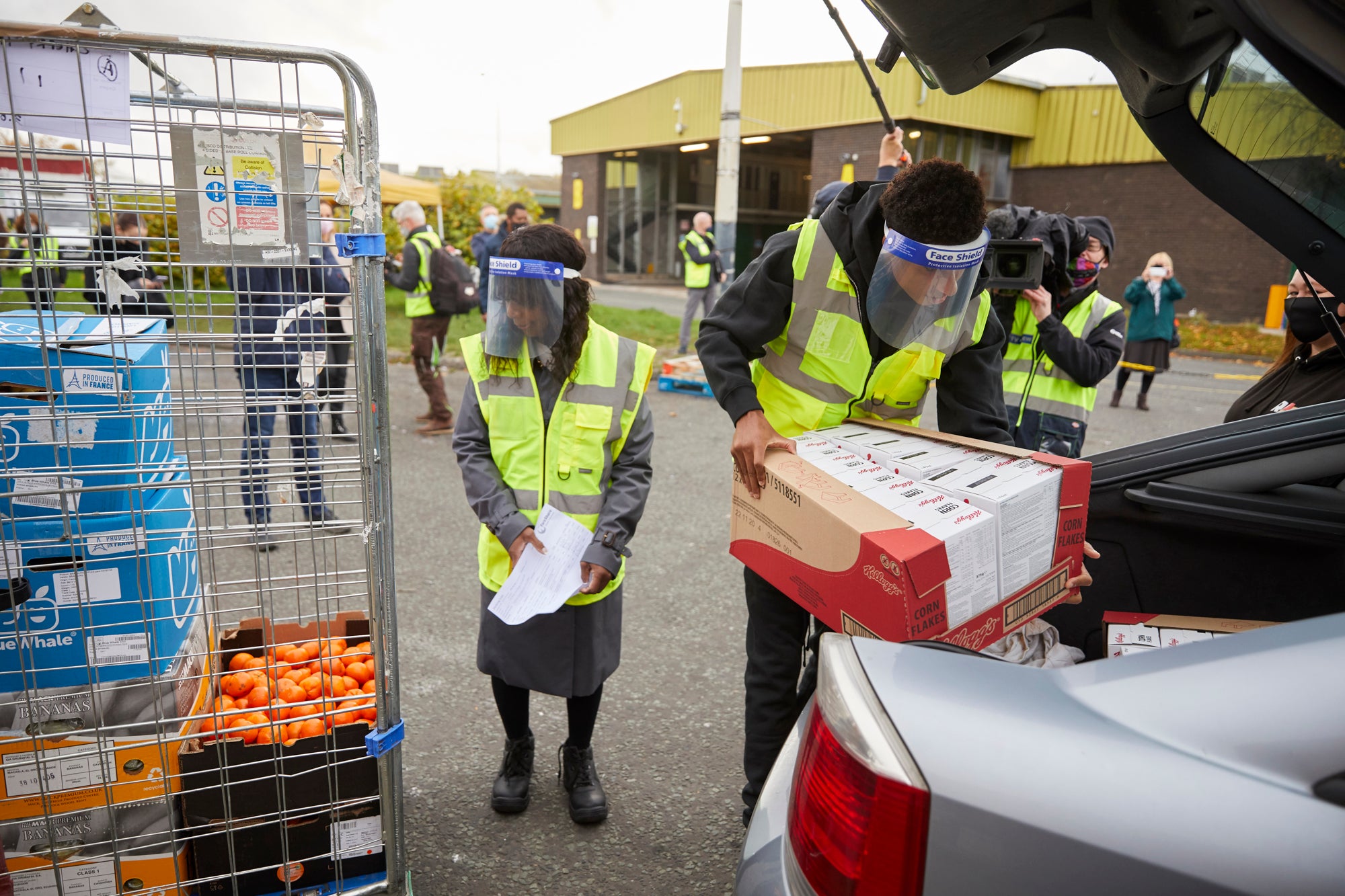Community efforts to stop children going hungry illustrate how far the government has drifted from the public mood
There is compassion and energy living deep within our local communities. We recognise that the time has come to take matters into our own hands


Something beautiful happened yesterday. In response to the government’s decision not to extend free school meals over the school holidays, dozens of councils, charities and companies have launched efforts in their communities to stop children going hungry. By midday, Marcus Rashford’s Twitter account had listed almost 100 examples from Cornwall to Durham and Eastbourne to Wigan, with a new one being added every few minutes.
This remarkable response tells us something important about where we are as a nation and how far the government is starting to drift from the public mood. It tells us that there is compassion and energy living deep within our local communities.
The response to the government’s big “no” on free school meals undoubtedly builds on the upsurge in activity that greeted the pandemic and the lockdown. The spirit of mutual aid and community action that did so much to support the official response to the crisis is far from dead. This is important news as we struggle against the second wave of coronavirus and new restrictions.
But it also shows that there is deeper wisdom in communities than there is in Westminster. Gavin Williamson’s House of Commons speech, rejecting Marcus Rashford’s demands, was essentially a long list of all the extra money the government argues it has ploughed into the welfare system. Listening to it, one would think that the nation’s poorest were living a life of luxury at the taxpayers’ expense. Those living in the most deprived parts of the country know this to be a fiction. But they also know that money handed down from on high is not enough. People need adequate state support but they also need a sense of agency, they need respect and they need power. They need to be part of active, strong communities that can generate change locally. Which is why the current upsurge of action is so important.
But this is no Big Society 2.0, some effort to pass the buck from slashed public services to communities. This must be something far more profound. It lights the path for a fundamental shift in the way we deliver public services, offer support to the worst-off and even do politics. This is the beginning of a move to a new model that regards citizens – no matter what their social standing or wealth – as worthy and equal partners of the state, with a role to play in the design and working of the services they rely on and the places they live. It is now citizens working with local public services who support the poorest in their community, not government departments located hundreds of miles away in Whitehall.
This is community power. It is a movement increasingly taking hold in local government. Look at councils like East Ayrshire in Scotland, which is designing its services around plans written by local communities; Essex, which is handing control of drug and alcohol recovery programmes to those in recovery themselves; and Newham, which has announced the establishment of a permanent citizens’ assembly. Just three examples among dozens of others, big and small.
The employment expert and social worker Tom Pollard wrote on Twitter yesterday: “Imagine having a government that harnessed the energy [of communities] rather than provoked it.” But it’s worse than that. The government currently seems determined to suppress community power. Downing Street’s centralising tendencies – on display in extreme form this week when it unilaterally imposed Tier 3 restrictions on Greater Manchester – strip the power and resources from local areas. As a result, communities are forced to simply fill in the gaps of a failing welfare system and achieve only marginal change in a political system run from Westminster.
There is an alternative emerging: one of well-funded public services, decent welfare and humane policies controlled not by the state but by the communities that rely on them. We await a government that understands how powerful this alternative could be. In the meantime, communities and local councils are starting to take matters into their own hands.
Adam Lent is director of New Local, an independent think tank and network with a mission to transform public services and unlock community power




Join our commenting forum
Join thought-provoking conversations, follow other Independent readers and see their replies